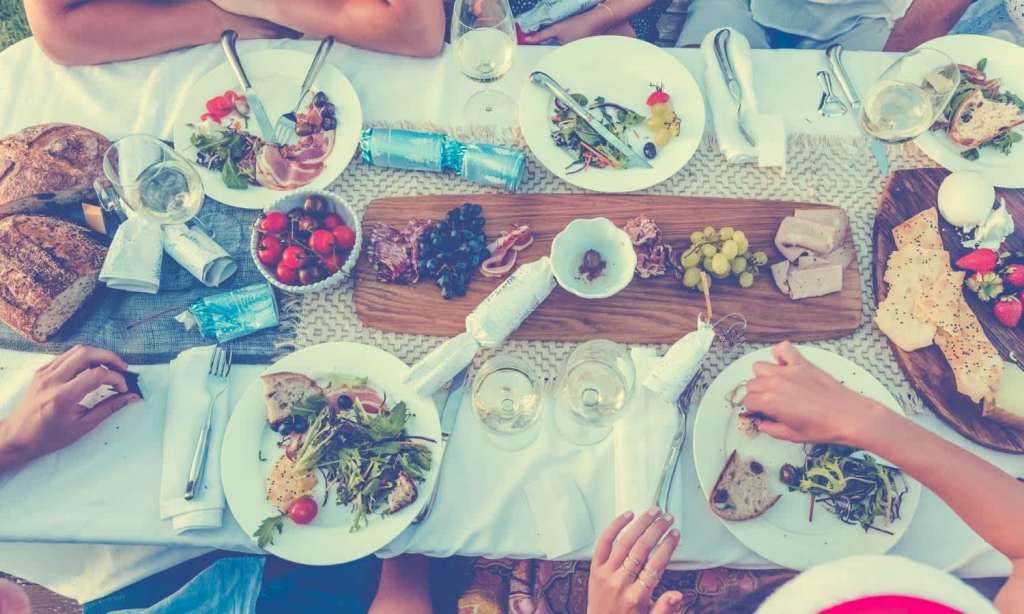One of the best things about the festive period is the leftovers. Christmas ham, summer salads, mountains of prawns, a good old fashion pavlova. But one of the riskiest things about the festive period is leftovers. Yes, we’re as heartbroken as you are.
In 2018, 1 in 5 Australians were affected by food poisoning around Christmastime. The Food Safety Information Council says that 1 in 3 are in a vulnerable group for food poisoning, or live with someone who is at risk.
Dr Elaine Tennant, Co-Director of Communicable Diseases at NSW Health, says they see increases in Salmonella poisoning every Christmas.
If you’re a bit nervous just reading this, don’t worry – The Latch has you covered. Read on, and discover what leftovers you should avoid, and which ones are safe for consumption:
Safe: Christmas ham
And a sigh of relief is released by carnivores everywhere.
Christmas ham, as long as it is handled properly, can keep for several weeks. Make sure you slice any leftovers, divide the ham into small containers, and freeze it to eat later.
Christmas ham can keep for several weeks with proper handling. It thaws well, so consider slicing any leftover ham, dividing it into small containers, and freezing it for later use.
Semi-safe: Turkey and cooked meats
These are good, as long as you’ve refrigerated them within an hour or two of being eaten, in a small container. They can last three to four days in the fridge and should be reheated in the oven at a temperature of at least 75°C.
If they had been left out any longer than four hours, it’s time to throw them out.
A little safe (but not really): Seafood
We Australians consume 40% of our yearly prawn intake over the festive period. We love our seafood, apparently. However, seafood spoils quickly.
Christmas lunch classics like prawns, oysters, and fish are high on the list of food that is likely to cause food poisoning. Refrigerate it promptly, and keep an eye (a nose?) on the smell – it’ll last a day or two at most.
Not safe: Starchy foods
We’re talking rice, pasta, and potatoes. Genuinely feeling a little betrayed by our three favourite carbs.
Heat-resistant bacteria can form on both rice and pasta if they’re left at ambient temperature – chucking them in the microwave won’t destroy the bacteria.
And our beloved potatoes? Like pasta and rice, potatoes can contain a nasty bacterium after they cool down post-cooking.
If you’re not quite sure, err on the side of caution – if it doesn’t smell, look, or (the smallest bite doesn’t) taste right, toss it out. Better safe than sorry.
Read more stories from The Latch and follow us on Facebook.

